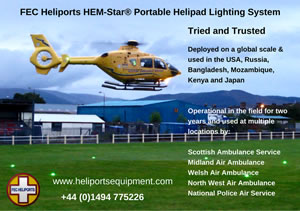ADi News2016-06-15 12:10:18
SwRI celebrating decade of unmanned systems program during Eurosatory
R&D leader develops technologies for autonomous vehicles used in defense, automotive sectors
Southwest Research Institute (SwRI), a leading developer of high performance automated driving algorithms and unmanned systems, is celebrating the 10-year anniversary of its Mobile Autonomous Robotics Technology Initiative during Eurosatory
Since 2006, SwRI has automated 15 vehicle platforms - from Class VIII tractor trailers and tactical military vehicles to passenger cars and golf carts - with automated driving systems deployed on four continents and seven countries, including Afghanistan.
"Our unique unmanned systems technologies enable automated vehicle deployment in support of military troops and support personnel in a variety of environments around the world," said Ryan Lamm, R&D director in SwRI's Automation and Data Systems Division.
At Eurosatory, SwRI will demonstrate technologies that enable reliable perception of humans and roadway obstacles in addition to showcasing algorithms for traversing roadways without GPS.
SwRI's modular perception systems detect and classify humans, vehicles, and other objects with dynamic scene understanding of complex environments for roadway and off-road applications.
SwRI also will display its patented Ranger localization solution. A 2015 R&D 100 innovation award winner, Ranger enables precise navigation for automated vehicles by utilizing ground-facing cameras and custom SwRI algorithms.
The system images the unique "fingerprint" of road surfaces. Algorithms match thousands of distinguishing ground features, such as aggregate, cracks and road markings, to corresponding features collected and stored in a map.
Its camera-based approach with controlled illumination allows for precise automated driving within 2 centimeters, similar to the most accurate (and most expensive) GPS systems, during daytime or night, and in rain and foggy weather conditions. Ranger also operates in areas where GPS has poor performance or fails completely, offering custom capability for military and commercial fleet vehicles.
"Ranger offers the defense sector numerous advantages in operational capability for deployment of unmanned assets in remote locations where GPS is disabled or unavailable," said Dr. Kristopher Kozak, a principal engineer in SwRI's Automation and Data Systems.
R&D leader develops technologies for autonomous vehicles used in defense, automotive sectors
Southwest Research Institute (SwRI), a leading developer of high performance automated driving algorithms and unmanned systems, is celebrating the 10-year anniversary of its Mobile Autonomous Robotics Technology Initiative during Eurosatory
Since 2006, SwRI has automated 15 vehicle platforms - from Class VIII tractor trailers and tactical military vehicles to passenger cars and golf carts - with automated driving systems deployed on four continents and seven countries, including Afghanistan.
"Our unique unmanned systems technologies enable automated vehicle deployment in support of military troops and support personnel in a variety of environments around the world," said Ryan Lamm, R&D director in SwRI's Automation and Data Systems Division.
At Eurosatory, SwRI will demonstrate technologies that enable reliable perception of humans and roadway obstacles in addition to showcasing algorithms for traversing roadways without GPS.
SwRI's modular perception systems detect and classify humans, vehicles, and other objects with dynamic scene understanding of complex environments for roadway and off-road applications.
SwRI also will display its patented Ranger localization solution. A 2015 R&D 100 innovation award winner, Ranger enables precise navigation for automated vehicles by utilizing ground-facing cameras and custom SwRI algorithms.
The system images the unique "fingerprint" of road surfaces. Algorithms match thousands of distinguishing ground features, such as aggregate, cracks and road markings, to corresponding features collected and stored in a map.
Its camera-based approach with controlled illumination allows for precise automated driving within 2 centimeters, similar to the most accurate (and most expensive) GPS systems, during daytime or night, and in rain and foggy weather conditions. Ranger also operates in areas where GPS has poor performance or fails completely, offering custom capability for military and commercial fleet vehicles.
"Ranger offers the defense sector numerous advantages in operational capability for deployment of unmanned assets in remote locations where GPS is disabled or unavailable," said Dr. Kristopher Kozak, a principal engineer in SwRI's Automation and Data Systems.
For more information contact:
